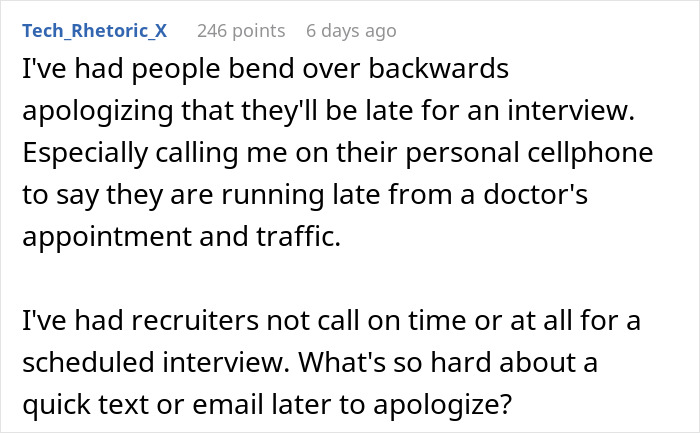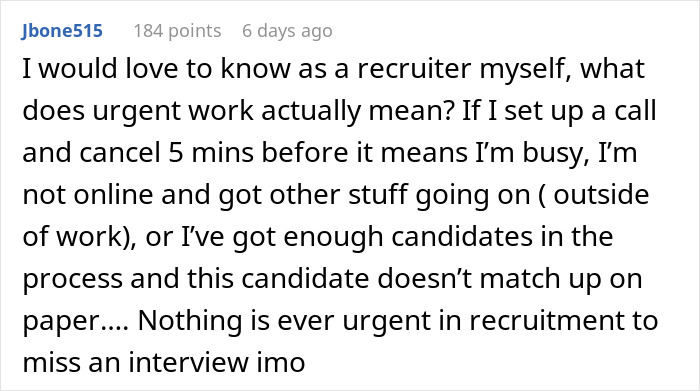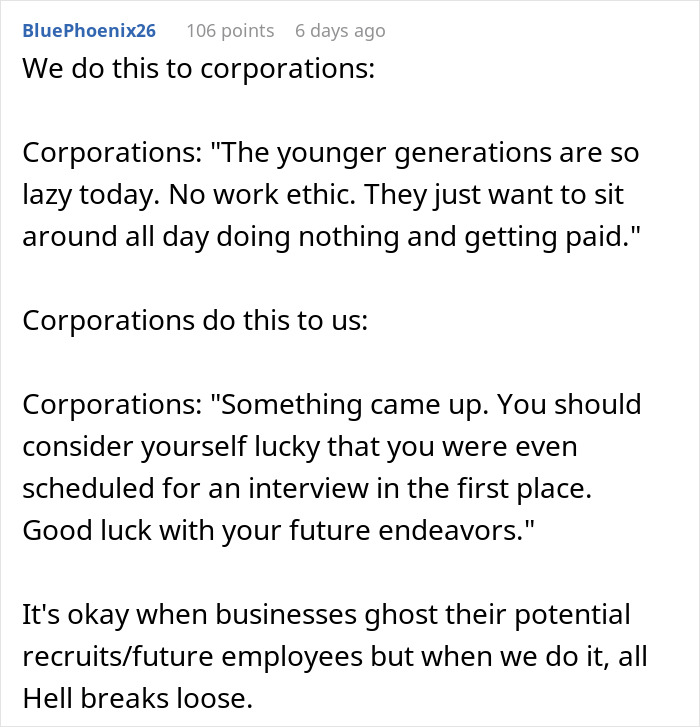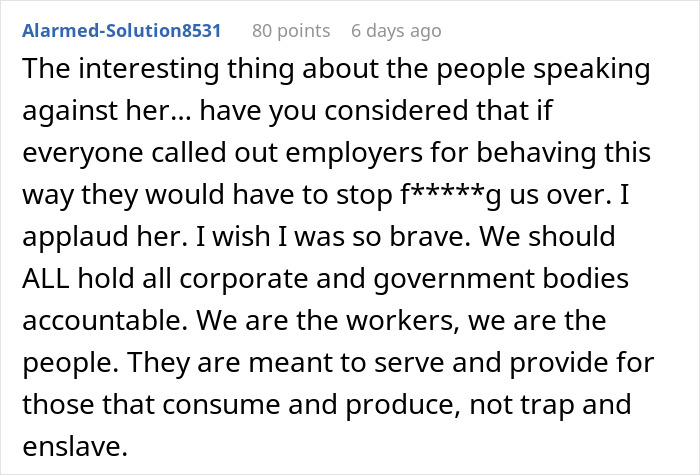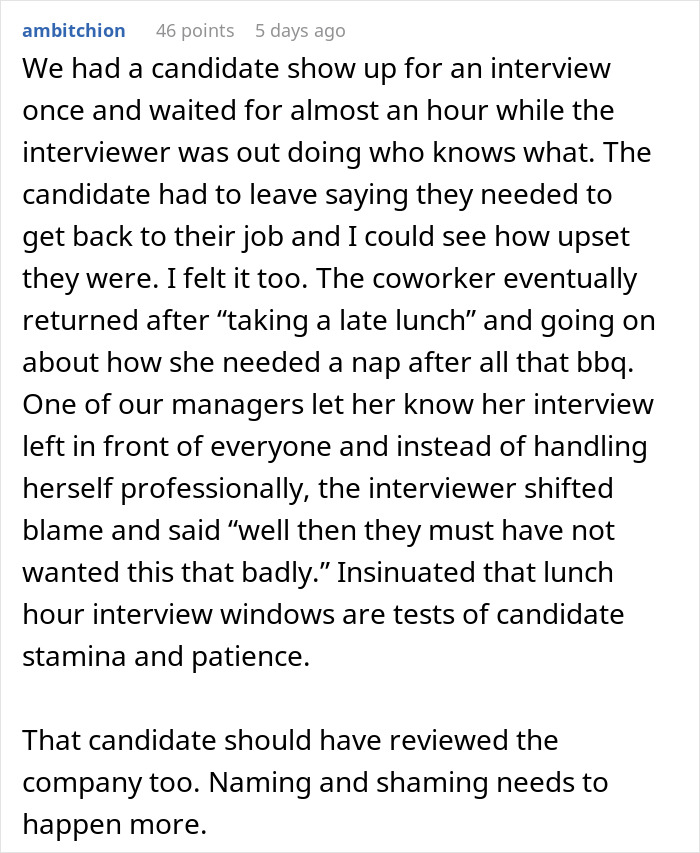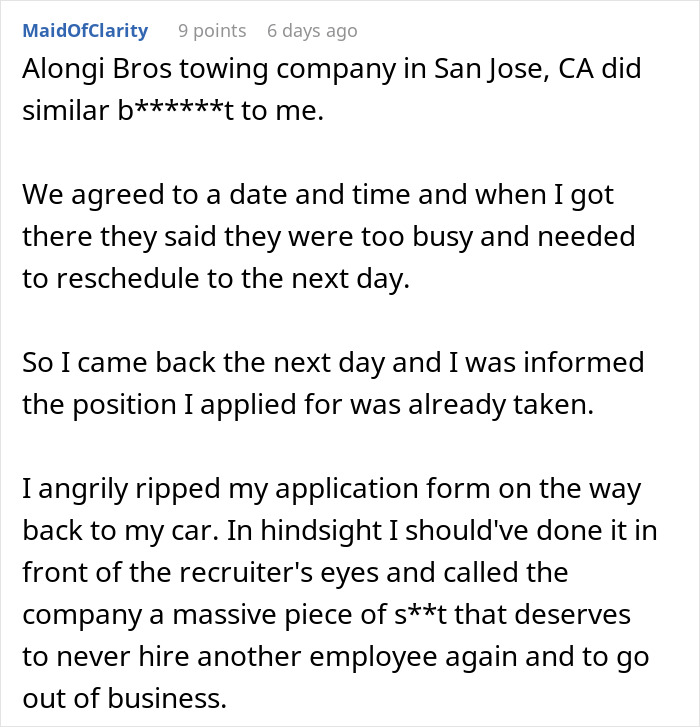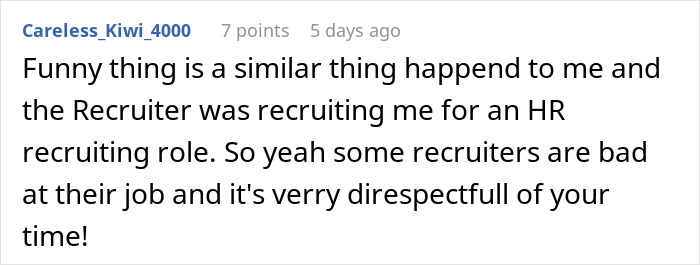When you have a job interview coming up, you plan your time and other work accordingly. If the interview doesn’t go well, all the planning is for nothing. According to the stats from Fair HR, attending a job interview may set a candidate back $72.29. So when a recruiter doesn’t show up, they waste a candidate’s time.
When it happened to this woman, she decided to call the company out in a post on LinkedIn. She shared her story hoping that some public naming and shaming might lead to better recruitment practices. And many people agreed with her, as they shared similar horror interview stories.
People plan and prepare for their job interviews, and they expect recruiters to do the same

So, when this woman was ghosted by a recruiter, she decided to call the company out in a public way
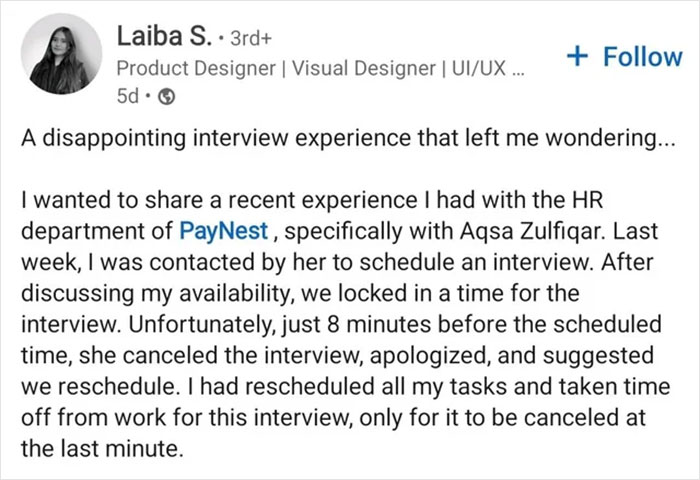
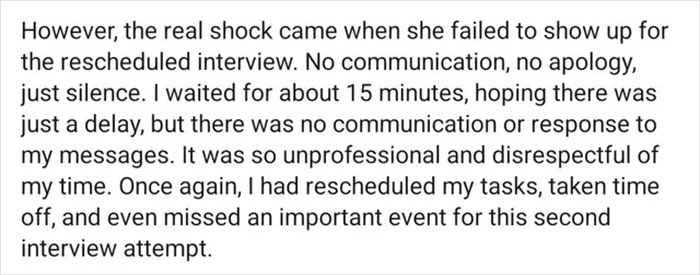


The woman shared the text messages between her and the recruiter

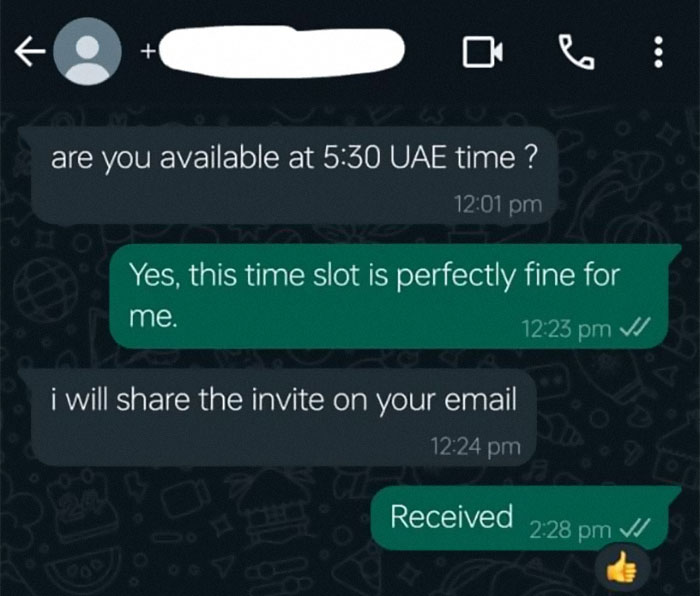
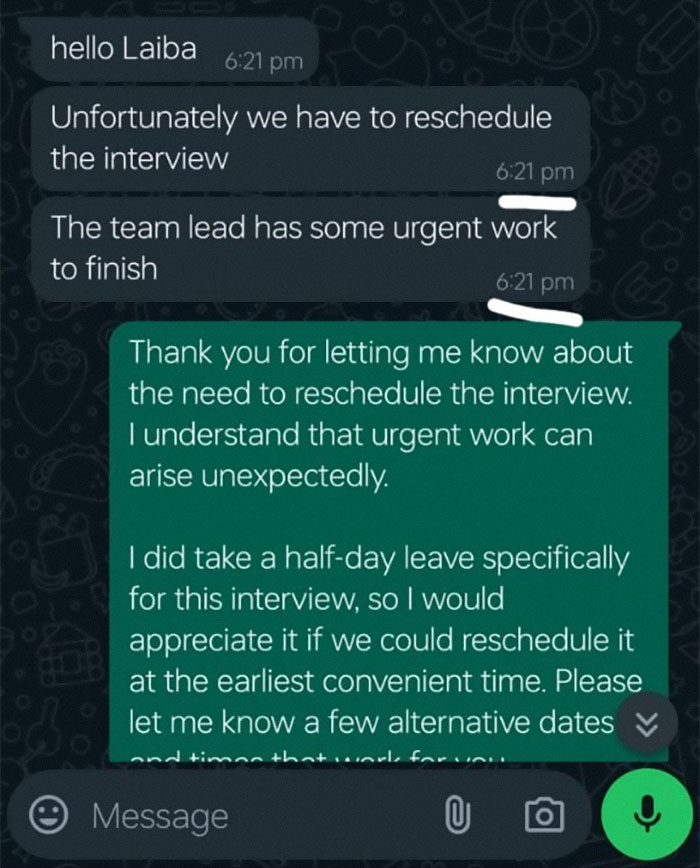
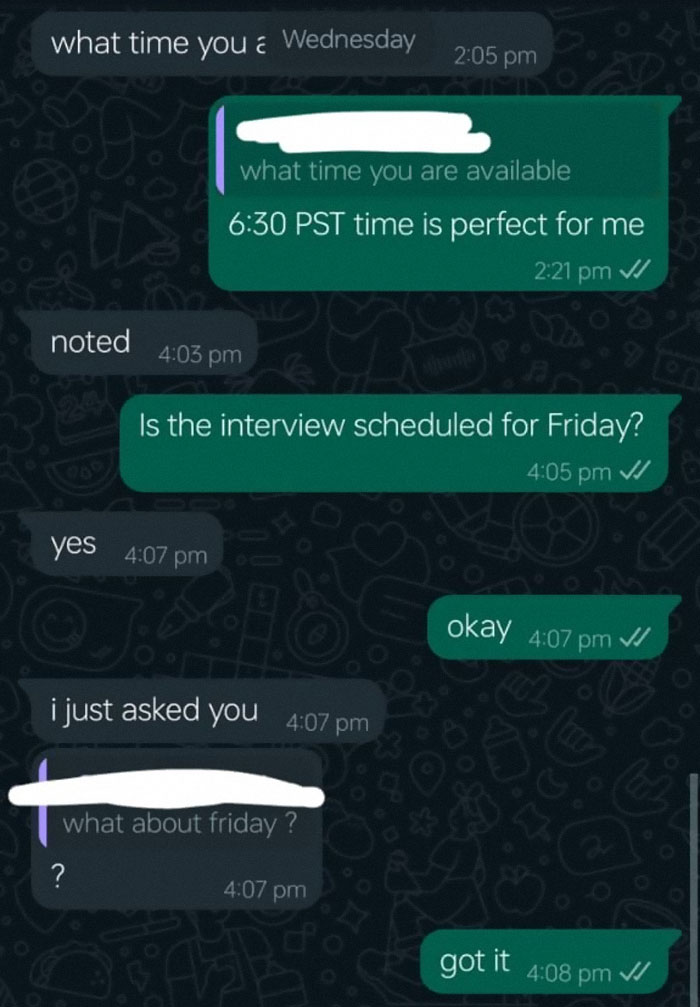
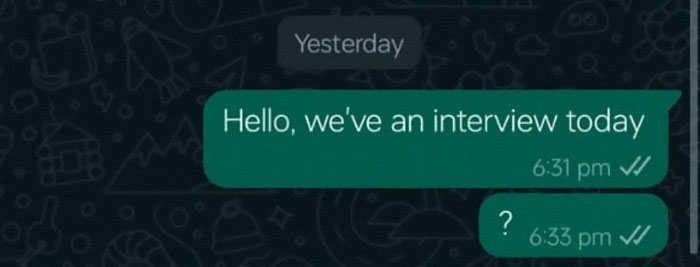
The company responded, and one person posted it in the comments
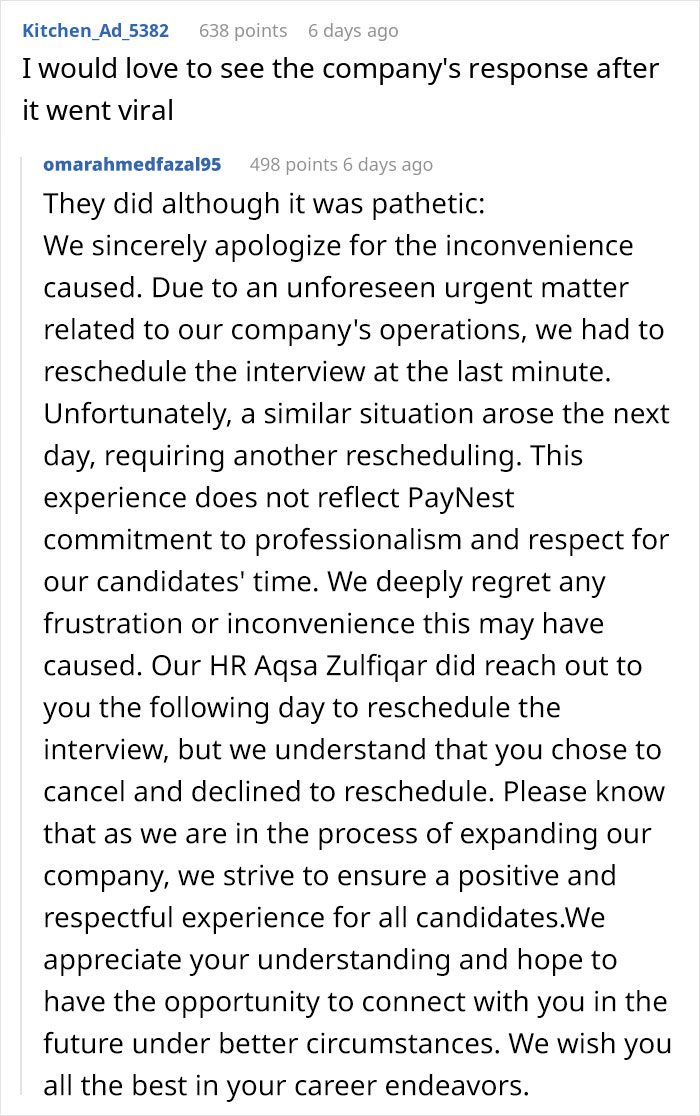
The CEO of the company responded to the woman’s claims, too
The story was posted on LinkedIn a week ago by visual designer Laiba S. She recounted an unpleasant experience with a recruitment person when applying for a position at the financial services company PayNest. Her post went viral: Laiba shared the statistics of her post in a follow-up, celebrating its two million impressions.
The official response from the company is posted in a Reddit post about this story. However, it no longer seems to be there amongst other comments under Laiba’s original post. Some netizens pointed out that it was probably removed once the post went viral because it was received poorly. Nevertheless, there currently is a comment from the CEO of PayNest, Murtaza Abedin.
He claimed to sympathize with Laiba and apologized for the shortcomings of his company. “We are a young organization constantly growing and trying to improve but as with any young and ambitious team we too sometimes make mistakes as we have made here, we can only try to learn from such experiences and persevere to make ourselves better so that hopefully in the future we can be better.”
However, it didn’t do much good, as many people just viewed it as insincere corporate mumbo-jumbo. “The lack of ownership and validation along with the use of excuses in this comment demonstrates poor leadership and disregard for the other individual’s time and effort,” one commenter pointed out.

Image credits: Sora Shimazaki (not the actual photo)
A lack of communication from recruiters is insulting to candidates
The woman’s main gripe with the company recruiter wasn’t the rescheduling or the canceling. It was the lack of communication and respect for her time. “I had rescheduled my tasks, taken time off, and even missed an important event for this second interview attempt,” the woman wrote about the second time the interview was rescheduled.
In the comments under Laiba’s post, an HR specialist, Mbalenhle A. Mthalane, defended the company, saying that sometimes it’s the hiring manager or management teams who ask recruiters to cancel interviews. “I am not making an excuse for HR however, from a lived experience it is important to also understand certain things are beyond HR’s control i.e. urgent business matters.”
Others thought the opposite. Career coach Charlotte Newman-Ford wrote: “I understand urgent issues arise and sometimes interviews need to be postponed at quite short notice (from either party) but there is NEVER an excuse for why you would not be told – it’s just courteous.” She claims that even if urgent matters arise, that’s what teams are for; colleagues should step up during emergencies.

Image credits: Tima Miroshnichenko (not the actual photo)
Shaming companies on social media can be satisfying, but this should be done with caution
Shaming companies and corporations on social media can be tempting, especially when we’ve been done wrong by them. Some people, like Laiba S., might want to bring awareness to the absurdities of the job market. But there might be a dark side to this public naming and shaming.
We consider shaming a person online cyberbullying. But doing that to companies somehow doesn’t feel as evil. Journalist and author of So You’ve Been Publicly Shamed Jon Ronson points out that companies are, too, made up of people. “Shaming a company is not a harmless thing in terms of cruelty towards individuals.”
He admits that shaming on social media sometimes does some good. Like in the case of Martin Shkreli, the CEO of Turing Pharmaceuticals, who hiked up the price of a toxoplasmosis drug from $13.50 to $750. In that particular case, public outrage on social media actually forced him to lower the price of the drug.
“Given that we’re the people who have the power, it’s up to us to work out when it’s deserved and when it’s not deserved,” Ronson told Zen Desk. “If a company has just done something stupid and everybody piles in on that company, that’s not a victimless assault. If your company has done something that actually matters, then fine.”

Image credits: Magnet.me (not the actual photo)
Many people sympathized with the woman and shared similar stories
